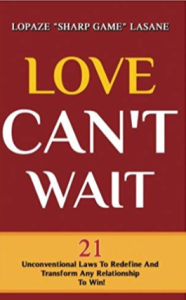Smart Ways to Recognize When It’s Time to Delete the Apps and Reclaim Your Digital Well-being
In my experience, figuring out how to know when to delete the apps isn’t just about decluttering; it’s about reclaiming my mental space and digital health. I’ve been researching this topic for a while because I noticed that some apps started to drain my energy, distract me from real-life connections, or just no longer served my goals. In my experience with how to know when to delete the apps, I’ve learned that recognizing the signs early can save me from unnecessary stress and digital overwhelm. I want to share what I’ve learned so you can also make mindful decisions about your digital habits.
From what I’ve discovered, understanding how to know when to delete the apps is essential for maintaining a healthy balance between technology and life. I believe that being aware of these signs helps me prevent app fatigue and regain control over my screen time. So, if you’re wondering how to know when to delete the apps, I’m here to guide you through my personal insights and practical tips to help you decide when it’s time to say goodbye to certain apps.
Understanding Why Deleting Apps Matters for Your Well-being
Why I Started Considering Deleting Apps
In my journey to better digital well-being, I realized that some apps were no longer positive influences in my life. I’ve found that constantly receiving notifications and updates can be overwhelming, leading to anxiety and distraction. That’s when I started to ask myself how to know when to delete the apps that no longer contribute to my happiness or productivity. It was a game-changer for my mental health.
The Impact of Apps on Mental and Emotional Health
From my research and personal experience, I’ve learned that excessive app usage can lead to decreased focus, lower mood, and even feelings of loneliness. I believe that regularly reviewing and deleting unnecessary apps is a proactive step toward safeguarding my mental space. Understanding how to know when to delete the apps is crucial for anyone looking to improve their overall well-being and digital hygiene.
How to Know When to Delete the Apps: Key Signs
Signs You Should Consider Deleting Apps
In my experience, one of the most obvious signs how to know when to delete the apps is when an app starts to feel more like a chore than a helpful tool. If I find myself mindlessly scrolling or feeling anxious when I think about opening certain apps, I know it’s time to evaluate whether they still serve a purpose. Recognizing these signs early can prevent digital clutter from taking over my mental space.
How to Know When to Delete the Apps Based on Usage Patterns
I’ve discovered that tracking my usage habits helps me identify which apps are draining my time without providing much value. If I notice I’m using an app out of habit rather than necessity, I consider whether it’s worth keeping. Learning how to know when to delete the apps based on patterns like frequency, duration, and emotional response has been eye-opening for me.
Emotional and Physical Cues
From what I’ve learned, emotional cues such as boredom, frustration, or guilt after using certain apps are strong indicators that I should delete them. Physically, if I experience eye strain or fatigue after scrolling through specific platforms, I know it’s time to reassess. These personal signals help me answer how to know when to delete the apps in a way that aligns with my mental and physical health.
Practical Tips to Identify When It’s Time to Let Go
Creating a Digital Detox Routine
I recommend establishing regular intervals to review your apps—like monthly or quarterly—to assess their impact. In my experience, during these reviews, I ask myself how to know when to delete the apps by reflecting on whether they still add value or cause stress. This habit has helped me stay intentional with my digital environment.
Using App Management Tools
I’ve found that utilizing built-in smartphone features like app timers or third-party management apps helps me monitor and control my usage. When I notice I’ve exceeded my limits or feel the need to delete an app because it’s taking up too much mental space, I see it as a sign. These tools support my understanding how to know when to delete the apps effectively.
Listening to Your Gut Feeling
Sometimes, I simply trust my instincts. If I feel uneasy or overwhelmed by certain apps, I take it as a cue how to know when to delete the apps. Personal intuition combined with rational assessment guides me toward making healthier digital choices.
How to Know When to Delete the Apps: Personal Stories and Insights
My Experience with Digital Overload
There was a time when I was overwhelmed by social media apps that kept me glued for hours. I learned how to know when to delete the apps by noticing my decreasing interest and increasing frustration. Deleting those apps allowed me to regain focus and improve my mental clarity. I recommend doing a digital detox to reset your habits and reassess which apps truly serve you.
When I Decided to Delete Old Apps
From my personal journey, I found that holding onto apps out of nostalgia or habit doesn’t always benefit me. I’ve discovered that asking how to know when to delete the apps by evaluating their current usefulness is crucial. After deleting unused or redundant apps, I felt more in control of my digital environment and less overwhelmed.
Recognizing the Signs of Digital Burnout
In my experience, persistent fatigue and inability to focus often sign that I need to delete or limit certain apps. Learning how to know when to delete the apps helped me identify when my digital habits were no longer healthy. I believe that regular app decluttering is a vital part of maintaining mental well-being.
Resources to Help You Decide When to Delete Apps
Authoritative Sources on how to know when to delete the apps
Throughout my research on how to know when to delete the apps, I’ve found these resources incredibly valuable. I recommend checking them out for additional insights:
Authoritative Sources on how to know when to delete the apps
-
When Should You Delete Social Media?
PsychologyToday.comThis article explores mental health impacts of social media and offers guidelines on recognizing when it’s time to delete or limit app usage.
-
Understanding Digital Addiction
NIH.govProvides scientific insights into digital addiction, helping me understand when digital habits become harmful and when to consider deleting apps.
-
How to Unsubscribe and Delete Unnecessary Apps
The New York TimesPractical tips on decluttering your digital life, including when and how to delete apps that no longer serve you.
-
Managing Digital Overload
CDC.govOffers insights into how digital overload affects health and strategies for reducing app clutter, helping me understand when to delete apps for better mental health.
-
The Mental Health Benefits of Digital Decluttering
Wired.comExplores how decluttering your digital space can improve mental clarity and provides tips on recognizing when it’s time to delete apps.
-
Digital Well-being and App Management
SAGE JournalsProvides academic research on digital well-being, including when and how to decide how to know when to delete the apps for optimal mental health.
-
Managing Digital Distractions
BBC NewsDiscusses current trends in digital distraction and offers insights into when and how to delete apps that interfere with daily life.
-
Guidelines for Digital Mental Health
American Psychological AssociationProvides professional guidelines on managing digital habits, including when to delete apps to protect mental health.
Frequently Asked Questions
Frequently Asked Questions
How do I know if an app is negatively affecting my mental health?
In my experience, if I notice that an app causes feelings of stress, anxiety, or frustration, I consider it a sign how to know when to delete the apps. Monitoring my emotional responses helps me recognize which apps are no longer beneficial and should be removed to protect my mental health.
What are practical ways to determine how to know when to delete the apps?
I recommend reviewing your usage patterns regularly and paying attention to your feelings during and after app use. If you find yourself scrolling mindlessly or feeling drained, it’s probably time to delete or limit those apps. Trusting your instincts combined with usage data makes it easier to decide how to know when to delete the apps.
Can deleting apps improve my mental health?
Absolutely. From my experience, reducing the number of apps I use has decreased my digital overload and improved my focus. I’ve found that deleting unnecessary or stressful apps helps me regain control and promotes a healthier mental state. Learning how to know when to delete the apps is a key step in this process.
What’s the best way to start deleting unnecessary apps?
I suggest setting a specific day each month to review your apps. During this time, I ask myself how to know when to delete the apps that no longer add value. Creating this habit helps me stay mindful of my digital consumption and keeps my device clutter-free.
How often should I evaluate my apps to maintain digital well-being?
In my experience, I recommend evaluating your apps at least once a month. This regular check-in helps me answer how to know when to delete the apps that are no longer aligned with my goals or causing unnecessary stress. Staying consistent ensures that my digital environment remains healthy and manageable.
Conclusion
In conclusion, my research on how to know when to delete the apps has shown me that mindfulness and regular review are essential. Recognizing signs of digital fatigue or emotional distress can guide me toward making healthier choices for my digital environment. I hope this guide helps you develop your own strategies for identifying how to know when to delete the apps that no longer serve your well-being. Based on my experience, taking control of your digital life is a vital step toward a more balanced, peaceful mind.
Find out more information about “how to know when to delete the apps”
Search for more resources and information:






